Understanding Risk Factors and the Relationship to Colorectal Cancer
Also known as the Seattle Colon Cancer Family Registry Cohort (CCFRC), CORE has been studying colon cancer and maintaining a cancer registry since 1997. We’ve registered more than 2,300 people diagnosed with colorectal cancer, as well as nearly 5,500 of their relatives. For the sake of comparative studies, the registry also includes people with no personal or family history of cancer.
Our research investigates the ways in which genetic, environmental and lifestyle factors interact with, or contribute independently to, the incidence and survival of colon and rectal cancers. We collaborate with other research institutions to offer long-range data for individual studies of colorectal cancer.
While we’re no longer recruiting new study participants, we continue to follow up with current participants as an essential aspect of our research.
About CORE Studies
From 1997 to 2011, we recruited people affected by colorectal cancer as well as some of their family members. And for study comparison, we also interviewed a randomly-selected sample of people not affected by colon cancer. Some individuals have continued participating in CORE Studies over two decades after their first interview. Most live in the Puget Sound region of Washington, but many live elsewhere in the United States and in other countries.
If you are a participant and have any questions about your participation, please contact us at the information below.
We contact participants like you every four to six years to update information such as personal medical history, family history of cancer, medications, and history of cancer screenings. This information is important for ongoing research about the causes and prevention of colorectal cancer.
What You Need Before Launching the Online Survey
Before launching the online survey you will need the following information located on the letter you recently received:
- Date of most recent survey you've completed (for your reference)
- Survey Access Code
If you’ve lost or misplaced your letter, please email us or call CORE staff at 800-276-0127.
About the Online Survey
Sometimes participants get ‘tired’ of participating. Find out why this interview is important by checking out one of our past newsletters.
The online survey averages about 15 minutes. Some tips while completing the survey:
- We strongly encourage you to answer all questions to the best of your ability in one sitting. When we ask for a date, approximate dates are all that we require.
- Questions with a red asterisk (*) are mandatory, but also have a “Do not know/Prefer not to answer” option. Questions without asterisks are optional.
- Do not use the browser’s back arrow key to return to previous questions. Use the “Previous Page” and “Next Page” buttons located at the bottom of the survey screen.
- If you are unable to complete the survey in one sitting, you can save it and return later, you will be given a return code to come back to your survey. You will need to write down this return code or you can have it mailed to you for future reference.
International Cooperation
The CCFRC is an international collective of registries. It’s the largest single resource for colorectal cancer research worldwide, due to its size and quality of participant-provided data. More than 35,000 individuals and 10,000 families have contributed, allowing for collaborative research with some of the world’s most knowledgeable cancer scientists.
Cohort sites:
- Fred Hutch
- Mayo Clinic
- Cedars Sinai
- University of Hawaii
- Ontario, Canada
- Australasian
Allyson Templeton, M.S. has served as Consortium Coordinator since 2007. She works closely with the six cohort sites, performing research and administrative activities to support the core infrastructure of the CCFRC.
CORE Team Information
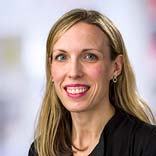
Amanda Phipps, Ph.D., M.P.H.
Dr. Phipps directs the CORE Studies/Seattle Colon Cancer Family Registry as its Principal Investigator. She works to identify how aspects of tumor biology and lifestyle factors, like smoking and physical activity, affect cancer survival.
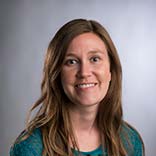
Rachel Malen, M.P.H.
Ms. Malen oversees data operations. She provides updates on data to other colorectal cancer cohort sites in the United States, Canada and Australia, as well as periodic reports to the National Cancer Institute.
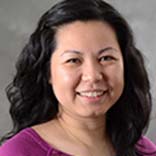
Mercy Laurino, M.S.
Dr. Laurino is certified by the American Board of Genetic Counseling and licensed by the Washington State Department of Health.
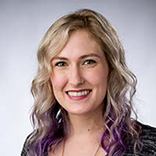
Adriana Reedy, M.S.
Ms. Reedy oversees the collection of medical records and biospecimens (blood, tissue and saliva samples) from contributing participants.
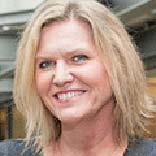
Renae Lydum
Ms. Lydum is the CORE Studies liaison to the Fred Hutchinson Cancer Center’s ethical review committee, the Institutional Review Board (IRB). She updates the IRB on matters related to study participants.
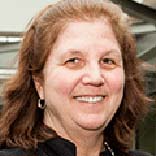
Lederle
Lederle conducts follow-up interviews with CORE Studies participants. She also contacts study participants about biospecimens and medical records.
CORE Newsletter PDF files will open in a new window.
Read the latest edition of COREnews: Spring 2025
Past CORE Newsletter editions:
For more information about colorectal cancer:
Gastrointestinal Cancer Prevention Program
People with a high risk of gastrointestinal cancers can get help creating a plan to assess, screen and prevent the development of cancer.
Gastrointestinal Cancer Clinical Trials
A listing of current clinical trials at Fred Hutch to treat gastrointestinal cancers, such as colon cancer. Note: some studies may be ongoing, but closed to new patient enrollment.
Washington State Breast, Cervical and Colon Health Program
Information on a program that provides free colon, breast and cervical cancer screenings for low-income men and women in Washington state.
Figg Tree Foundation
A financial aid resource to pay for colonoscopies, some treatment and community education for those affected by colorectal cancer.
National Cancer Institute
English and Spanish language information about colon and rectal cancer, including cancer terms, screening and treatment information, a clinical trials search page and free NCI publications.
American Cancer Society: Colorectal Cancer
General information about colorectal cancer, including online support communities and local American Cancer Society offices.
Featured Hutch Articles
Colorectal and other cancer risks for carriers and noncarriers from families with a DNA mismatch repair gene mutation: a prospective cohort study
Journal of Clinical Oncology. March 20, 2012; Volume 30(9): pages 958-64.
A study concluding Lynch Syndrome (a pattern of symptoms resulting in a higher incidence of colorectal and certain other cancers) increases the risk of developing colorectal and six other types of cancer.
Pre-diagnostic smoking history, alcohol consumption, and colorectal cancer survival: the Seattle Colon Cancer Family Registry
Cancer. November 1, 2011; Volume 117(21): pages 4948-57.
A study showing people who smoked at the time of colorectal cancer diagnosis were more likely to die of the cancer, especially if their tumors showed a common feature seen in tumors of people with Lynch syndrome.
Pre-diagnostic non-steroidal anti-inflammatory drug use and survival after a diagnosis of colorectal cancer
Gut. April, 2011; Volume 60(4): pages 491-8.
A study concluding people taking non-steroidal anti-inflammatory drugs (NSAIDs) at the time of their colorectal cancer diagnosis had a better disease outlook than people who were not regular NSAID users.
Physical Address
Fred Hutchinson Cancer Center
1100 Fairview Ave. N.
Seattle, WA 98109
Mailing Address
Fred Hutchinson Cancer Center
CORE Studies
Mail Stop M4-B402
PO Box 19024
Seattle, WA 98109-1024